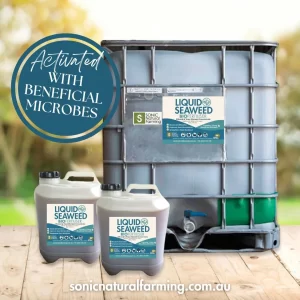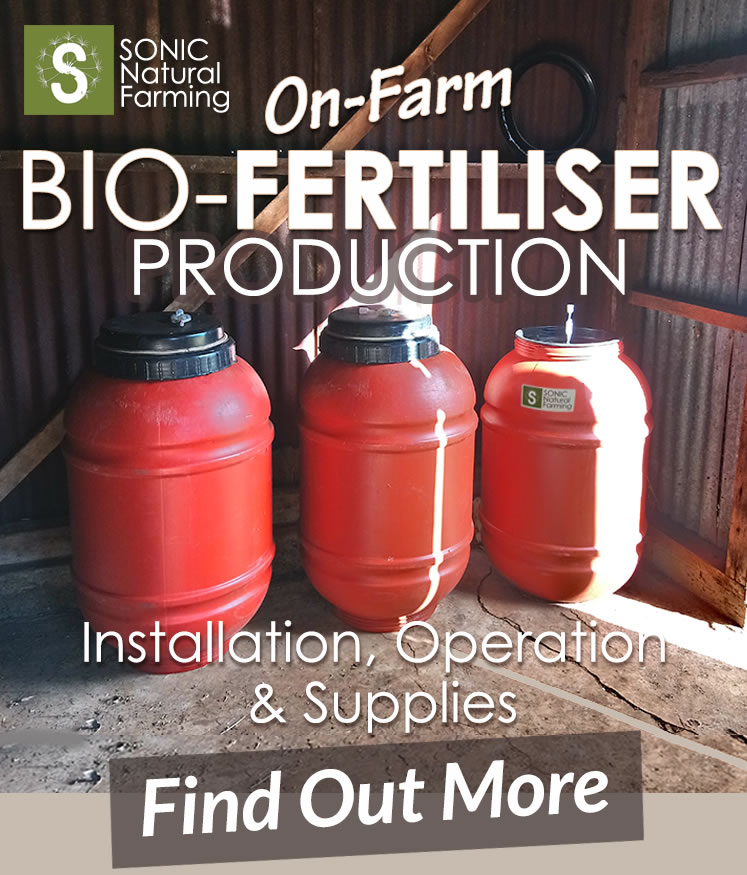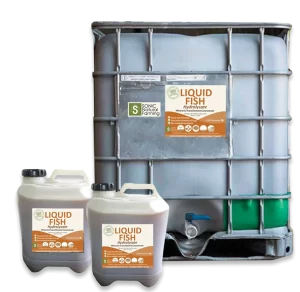Top 4 Advantages of Using Liquid Fertiliser
Unlike traditional solid fertilisers, liquid fertilisers can be applied directly to the leaves or through the soil, providing plants with immediate access to essential nutrients.
1. Liquid Fertiliser Delivers Prompt Mineral Absorption
One of the key advantages of using liquid biological fertilisers is their ability to be absorbed by plants through foliar absorption. When sprayed onto leaves, these fertilisers are quickly taken up by the plant’s foliage, allowing for efficient nutrient uptake. This method is particularly beneficial when plants are experiencing nutrient deficiencies or stress, as it provides a rapid solution.
Alternatively, liquid biological fertiliser, such as Fish Hydrolysate or Seaweed Biological Fertiliser, can also be applied through root application via soil penetration. Lqiquid fertiliser penetrates the soil rapidly upon application, ensuring that nutrients are readily available for soil microbes, and plant roots to absorb. This method is especially effective in promoting healthy root development and overall plant growth.

The prompt absorption and utilisation of nutrients provided by liquid fertiliser contributes to improved crop yields and healthier plants. Additionally, their versatility in application methods makes them suitable for various farming practices and gardening needs.
Liquid fertiliser offers a convenient and effective solution for delivering essential nutrients to plants. Their ability to provide sustained absorption through both foliar and root applications makes them an invaluable tool in modern agriculture and horticulture practices.
2. Liquid Biological Fertiliser Contains ‘Living’ Beneficial Biology
Activated with beneficial microorganisms, liquid biological fertiliser is biologically alive, and enriched with naturally balanced minerals, such as ocean fish and seaweed, offering a sustainable and effective solution for promoting plant growth and building fertility in the soil.
The living biology in liquid biological fertiliser has two key necessities in order to survive – food and water. Without these essential elements, the beneficial microorganisms cannot thrive and provide the full range of benefits to plants.
Dry fertilisers, on the other hand, may contain some biological components, but they are not considered biologically active or ‘alive’ in the same way as liquid formulations. The lack of moisture in dry fertiliser means the living organisms are dormant.
This distinction is important to understand when selecting fertilisers for optimal plant growth and soil vitality. Liquid biological fertiliser offers a distinct advantage by delivering a living microbial community that can immediately get to work supporting nutrient cycling, root development, and plant resilience when applied.

New growth on Kilburney Farm Avocados, grown using regenerative principals alongside SONIC Fish Hydrolysate and Liquid Seaweed Biofertiliser. (Above image).
3. Liquid Fertiliser Offers Easy to Uptake Bio-available Minerals
Liquid biological fertiliser, often referred to as foliar fertiliser, harnesses the power of natural ingredients, such as seaweed and fish, to provide essential nutrients to plants in a readily available form.
Liquid Seaweed Biological Fertiliser, derived from ocean kelp, is rich in trace elements, vitamins, and minerals that are beneficial for plant health. Seaweed helps stimulate soil microbe activity, plant root development, enhance nutrient uptake, improve soil structure, and increase resistance to environmental stressors. Additionally, Liquid Seaweed (kelp) Fertiliser contains natural growth hormones like auxins and cytokinins that promote overall plant growth and development.
Liquid Fish Hydrolysate Fertiliser is another type of liquid fertiliser that is derived from the remains of fish or fish by-products. It is packed with essential nutrients such as nitrogen, phosphorus, potassium, calcium, magnesium, and trace elements. Liquid Fish Biological Fertiliser not only provides immediate, bio-available nutrition to plants, but also contributes to improved, long-term soil fertility.
Seaweed (kelp) and fish Biological Fertiliser both offer a comprehensive solution for promoting plant health. The beneficial microorganisms present in these liquid fertilisers help break down organic matter in the soil into simpler forms that can be easily absorbed by plants’ roots. This enhances nutrient availability to plants, while improving soil structure and fertility.

4. Liquid Biological Fertiliser is Safe for the Environment
Using organic liquid fertilisers, activated with beneficial microorganisms, is an eco-friendly alternative to synthetic chemical-based options.
Biologically activated liquid fertiliser provides naturally balanced organic nutrients while supporting sustainable farming practices. Whether used in commercial agriculture or home gardening settings, liquid biological fertilisers have shown excellent results in enhancing plant growth while minimising environmental impact.
Furthermore, SONIC Natural Farming utilise fish waste, from processing, and ethically harvested Australian bull kelp, for manufacturing Liquid Biological Fertiliser, making it an even more sustainable option for the environmentally conscious grower.









